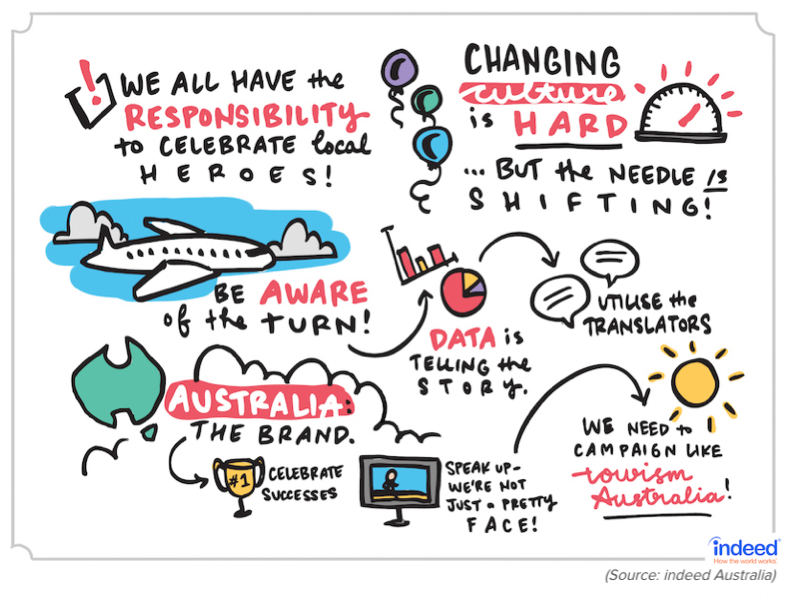
Get your FREE 30-day trial.
Start by selecting a product:
I was recently invited to speak at an industry event, alongside fellow panelists from Google, Atlassian and Red Garage Ventures, to talk about ‘Tapping into Australia’s high potential workforce’. The event was organised by Indeed - the world’s largest job site.
The resounding narrative from the panelists was that Australia’s macroeconomic shift to an innovation economy is bringing a number a challenges – the most pressing being our ability to attract and retain a high potential workforce.
A recent Deloitte ‘Digital Pulse’ report projected a shortage of 100,000 IT workers in the next five years, while according to CSIRO, Australia will need to retrain six million people to become digitally literate by 2025 if we’re going to have any hope of competing on the international stage and successfully pivoting to a knowledge economy.
Most Australians still haven’t grasped the urgency for change or understand the scale of change required. In fact, according to a new report by the Foundation for Young Australians, 60 per cent of Australian students are training for jobs that will not exist in the future or will be transformed by automation.
This is an urgent warning to every Australian, including government, education institutions and businesses to action strong policy and real initiatives to ensure we have the right skill-sets needed for the future job environment.
So, how do we address the challenge?
Addressing our skills shortage with urgency
The most pressing issue we face today is solving the immediate skills shortage. Internationally competitive companies are recruiting ‘10xers’, a term used to describe extremely talented individuals who can increase business outcomes by 10 fold. 10xers are the secret sauce behind the success of start-ups like Facebook, Google, Apple and Salesforce.
The challenge for the Australian government and business community is how to develop a local ecosystem that attracts this kind of world-class talent - today.
Building a local start-up and innovation ecosystem
As a starting point, it’s important to understand the interplay between talent, culture and the creation of a thriving innovation ecosystem. I often describe talent as the fertiliser and culture as the weather - both are vital in order for the ecosystem to grow and flourish.
The recent innovation push by the government is a good start - people are starting to see that a home-grown start-up and innovation ecosystem is essential to attracting and keeping world-class talent in Australia. It also showcases new and exciting industries to our graduates and encourages them to explore the opportunities this new local economy offers.
This is was certainly a point that was discussed at length and one that all my fellow panelists agreed on.
 Time to celebrate Australia’s 10xers
Time to celebrate Australia’s 10xers
I often wonder why our great Aussie business founders – those who defied all the odds and cracked the notoriously competitive global market - don’t get the same spotlight and recognition as our sporting heroes. They don’t often feature in the six o’clock evening news and not many of them are household names. Bernard Salt recently pointed out that in the past two decades, we have not recognised an individual as ‘Australian of the Year’ for their contribution to business and the economy.
The panel agreed that Australia has done a great job at creating an identity around our beaches, lifestyle and sporting accomplishments. Its now time to turn our attention towards innovation - and making Australia a must-see destination for that.
Celebrating our local business successes is a conversation that needs to be part of our vernacular as a nation, to not only attract the best talent, but to also encourage our best and brightest minds to pursue new avenues of opportunity.